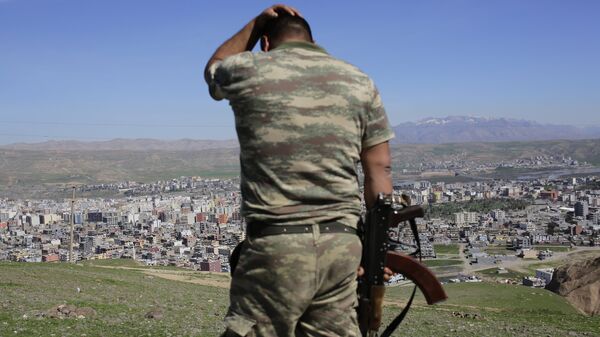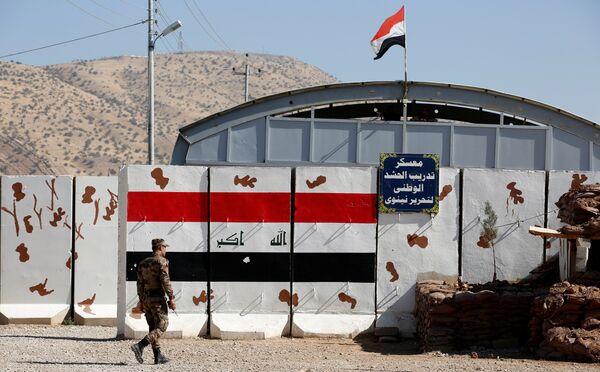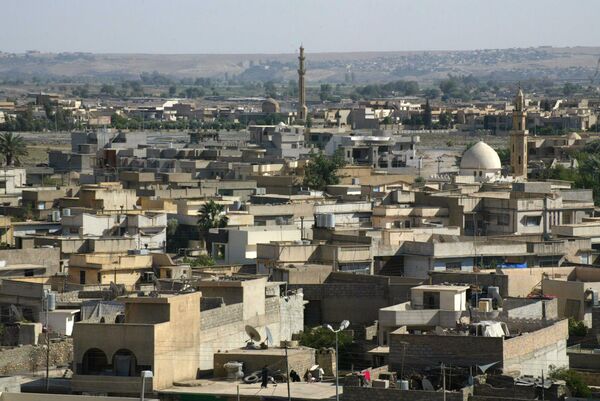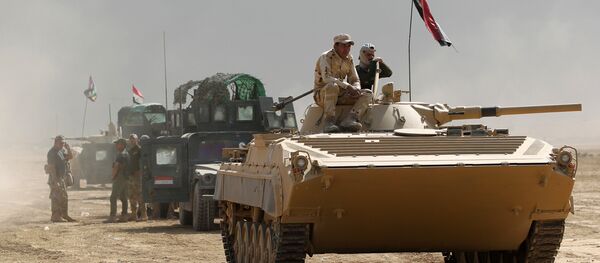"It should be mentioned in the first place that the recently launched operation to liberate Mosul has demonstrated that Turkey, despite all the rumors and suggestions, has been left on the sidelines of the offensive, and Ankara understands it only too well," said Öztürk Yılmazm deputy chairman of Turkey's main oppositional Republican People's Party (CHP).
In 2013, Yılmazm was appointed as the Consul General of Turkey to Mosul. He was taken hostage in June 2014 and held for 101 days along with 48 other diplomats after Daesh militants took over the city, being released under undisclosed circumstances by the Turkish National Intelligence Organization (MİT) on 20 September 2014.
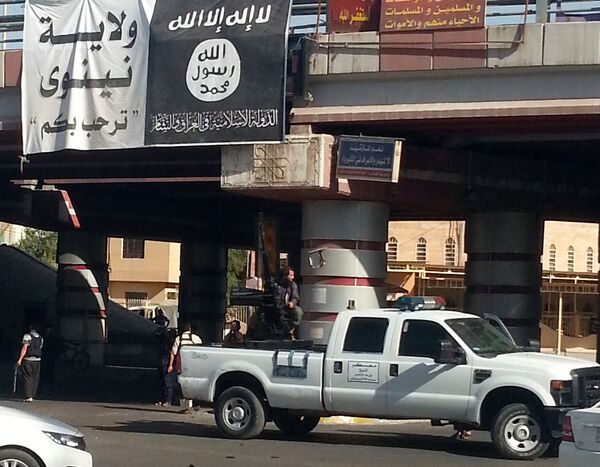
"A Turkish delegation has left for Baghdad to discuss the situation in Iraq. It is a positive, albeit belated, move by the Turkish leadership. It should have done long ago," the politician said.
Turkey sent a delegation to Baghdad on October 17 for talks with the Iraqi administration, with the goal of persuading Baghdad to reconsider its objection to Turkish troops being stationed in the north of the country, Turkish Hurriyet Daily news, the country's English-language daily reports on Tuesday.
The delegation is headed by Foreign Ministry Undersecretary Ümit Yalçın and includes officials from various security institutions. It is set to discuss the mandate and task duration of Turkish troops in the Bashiqa camp in Mosul province.
"There are two issues which top the agenda of the meeting on the current situation," the former diplomat told Sputnik.
"First, is the situation in the Bashiqa camp and second is the status and tasks of the Turkish instructors operating in the camp," he specified.
The politician explained that the Central Government of Iraq does not want the Bashiqa camp to take part in the Mosul operation. The forces operating in the camp however can be taken under the patronage of the US-led coalition and thus will take part in the operation.
Meanwhile, there was no permit issued for the independent participation of the forces which are being trained by Turkey in the operation to liberate the city.
These forces have been put under the command of the Kurdish Peshmerga forces which in itself means the recognition of the legitimacy of the activities of Masoud Barzani, the politician noted.
Barzani is an Iraqi Kurdish politician who has been President of the Iraqi Kurdistan Region since 2005, as well as leader of the Kurdistan Democratic Party since 1979. Ankara says that Turkish troops deployed to northern Iraq in 2015 entered the country to train local fighters at his request.
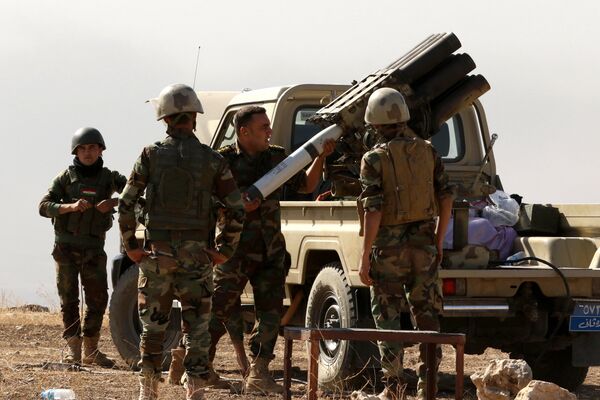
"The Kurdish Peshmerga forces currently control the largest part of the territories retaken from Daesh militants and this could lead to certain political consequences," the politician said.
So far the leadership in Baghdad does not mind the control of Kurdish forces over the liberated territories as the main task now is to eliminate Daesh, he said. However after Mosul is liberated from the jihadists the question of who will have control over these territories will be the subject of serious disputes.
The former diplomat noted that during the fight against Daesh, the leadership of Iraqi Kurdistan has expanded its territories by 40 percent. And this issue will soon top the agenda as well as the future of Mosul and the whole of Iraq.
With regards to the future of Mosul, Öztürk Yılmaz said that there are already three plans for the future development of Iraq's second largest city.
The Iraqi Central Government wants to liberate the city and give it back the status of a province. The Sunnis want to make Mosul the center of the Sunni region. And finally the Kurds have their own plan which is to join it to the territories of the regional government of Iraqi Kurdistan.
The upcoming events will show which plan out of the three will get the go-ahead.
Commenting on the reasons why Turkey has been left out of the operation, the politician said that it was because of its policy towards Iraq.
"For a long time Turkey has been underestimating the capability of the Iraqi Central Government, considering it weak, unable to control the situation in the country and defend its own legitimacy," he said.
The former diplomat expressed hope that Turkey will be able to get involved in the operation somehow and will take its place among the players who will define the situation in the region.
To be able to do it, Ankara should pursue a constructive policy refraining from provocative rhetoric which ignites inter-ethnic and sectarian hatred.
Turkey should maintain dialogue not only with the Sunnis but other religions and ethnic elements in the region and, most importantly, refrain from any inter-ethnic conflicts, Öztürk Yılmaz finally stated.

